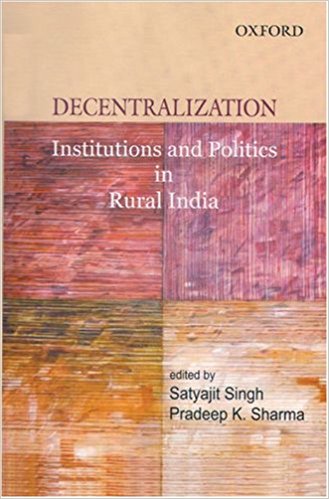In recent past there have been several publications on Decentralization for good reason. One that it is an emerging dimension of our polity which is bound to change both the political and social order. Besides, it seeks to alter the character of economic growth so as to make it edible for all, that is, ensure to every adult equitable earning opportunities and access to its fruits. There is however a big IF. If it can succeed in raising its head against Himalayan odds.
The latest account of its current health is brought to us by DECENTRALIZATION: INSTITUTIONS AND POLITICS IN RURAL INDIA edited by Satya Jit Singh and Pradeep K. Sharma. It puts together an account of the variations on the decentralization theme as has unfolded in select States notably Kerala, West Bengal, Karnataka. It also brings forth problems of fiscal decentralization, the state of local finances and takes a sectoral look in relation to water.
Moreover, it claims to provide a view of the impact of reservations of seats for the disadvantaged sections. Specially reservation of seats in rural panchayatraj institutions for scheduled castes, scheduled tribes and women. These reservations are admittedly the hallmark of the 73rd, 74th Amendments. They go beyond the general notion of decentralization confined to development activity and administration. All that is commendable effort. But much of the ground the authors have covered in the 441 pages is familiar – covered by earlier publications. It is more of the same. And, that is a lost opportunity.

